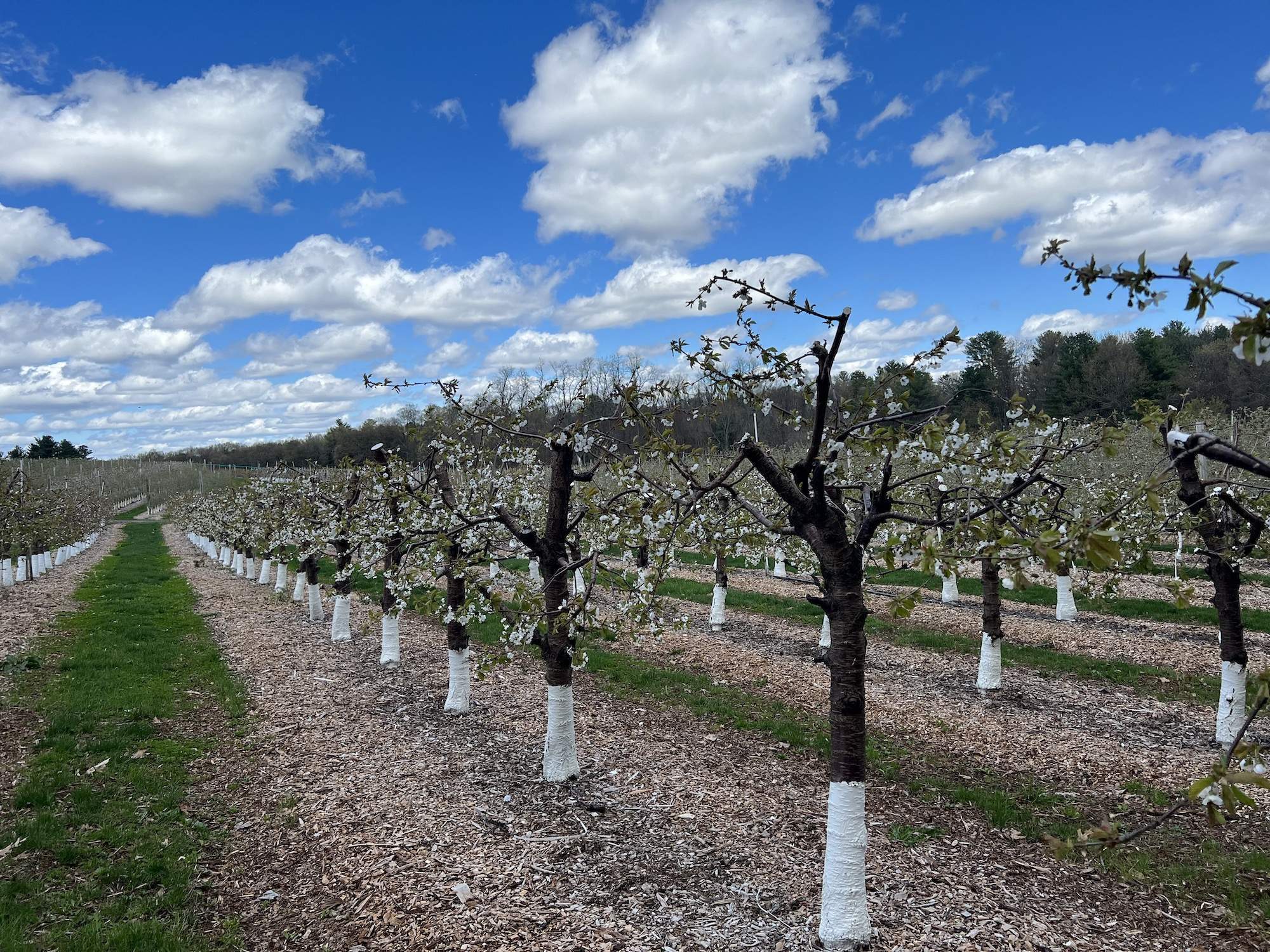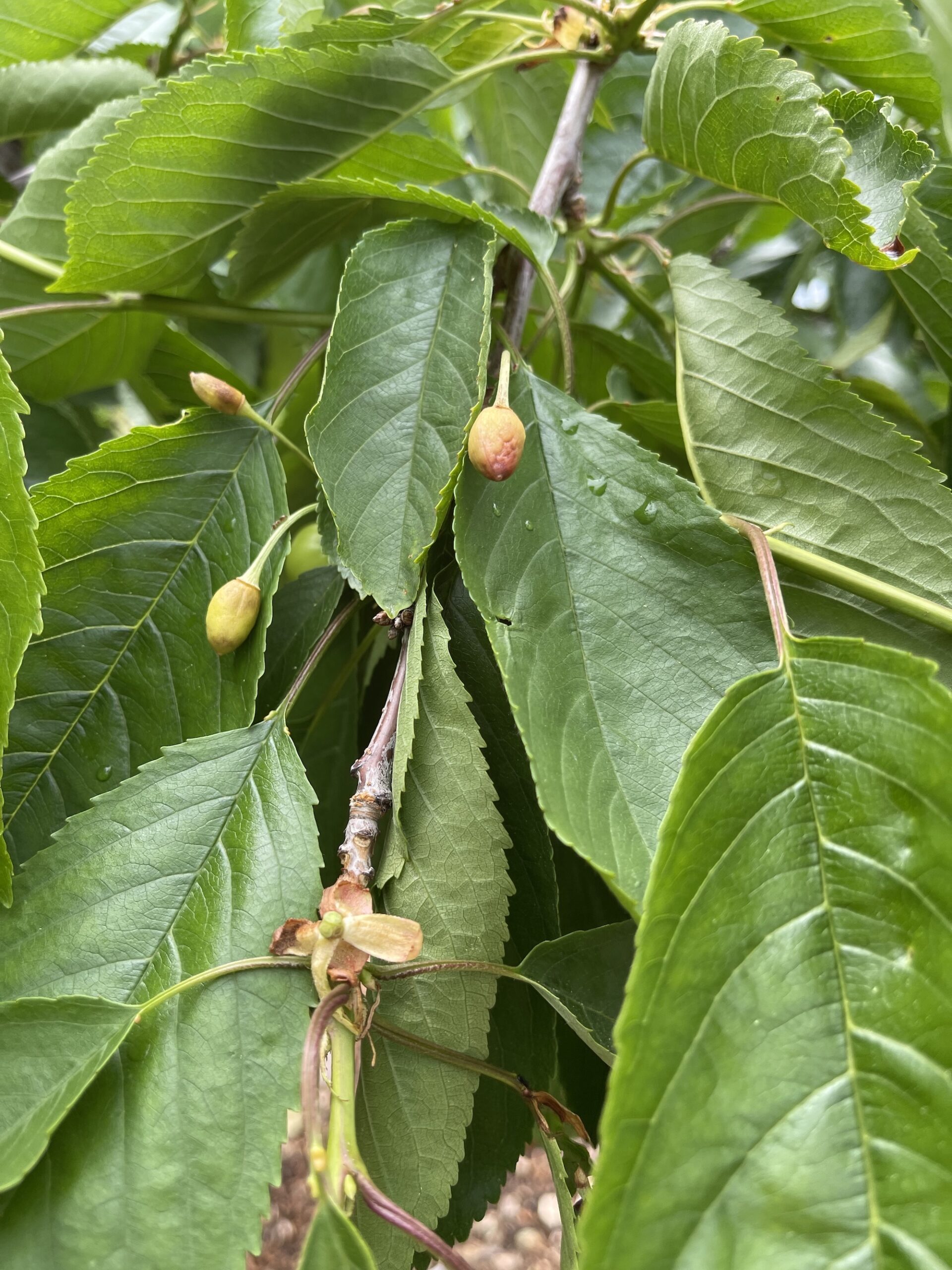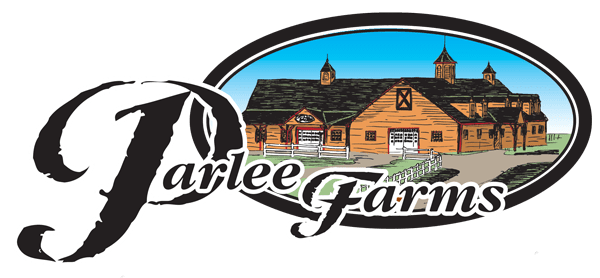Cross pollination is one of the “unsung heroes” of growing plants. Some plants, such as our cherry crops, rely on cross pollination to eventually produce its fruit. If something breaks down in the process, there will be no crop. Here is some more information about how our cherry crops depend on cross pollination:

Cross Pollination and Parlee Farms’ Cherry Crops
We grow 6 different varieties of sweet cherries at Parlee Farms in Tyngsboro, MA. The major varieties are Black Gold and Regina varieties. They are a popular pick-your-own crop and we always look forward to them in late June. Unfortunately, we lost our cherry crop this year due to one cold night in February and a lack of cross pollination (what’s that?!).
In the early morning hours on February 4th, 2023, we reached -12 degrees Fahrenheit and record cold wind chill of -35 degrees Fahrenheit. Sadly, this killed the majority of our dormant cherry buds (trees are fine!).
In the spring, flowers starting blossoming all over our Regina cherry trees, we began to have some hope! But Farmer Mark said don’t count on cherries just yet, as Regina cherries require cross pollination for a cherry to form.
 What Is Pollination and Cross Pollination?
What Is Pollination and Cross Pollination?
Pollination is when the pollen is transferred from the male reproductive organ of flower to the female reproductive organ, leading to fertilization. This refers to the transfer of pollen within a single flower or between flowers of the same plant. Cross pollination requires transfer of pollen between two different plants of the same species.
Regina requires cross pollination, for example and this year since Regina cherries were the only variety to flower, they were unable to be pollinated.
It has been a challenging year for farmers of stone fruit in Massachusetts, but we feel so fortunate that our strawberries, blueberries, apples and all other crops look fantastic! Blueberries will be coming soon! For most up to date picking conditions, always check on our website at parleefarms.com.
